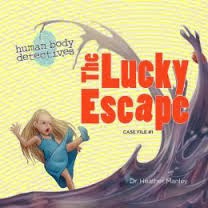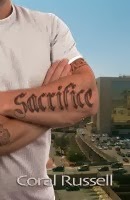10 Tips for Becoming a Better Writer
Become a better person. Writing
is truth serum. All your biases come out. All your good points and your
bad points. You can’t always see your personal warts in your own
writing, but other people are likely to. Sometimes clearly—they’ll know
exactly what’s messed up about your perspective on the world. Other
times your readers just feel like something’s off without being able to
put their finger on it. But in both cases, unless they share your exact
biases, your readers will see any ugliness in your heart that you’ve
spilled out on the page. So try and work on being fair and kind to
people within your own heart before you start opening it up.
Live a better life. Your inspirations, your reference points, and your obsessions all have to come from your lived, direct experience. Or, second best, the lived, direct experiences of someone you know personally. Otherwise you’re drawing from some other writer’s interpretations. And that’s a photocopy of a photocopy, at best.
Lower your expectations. It’ll make you happier in general. It’ll also make you happier about your work. It’s hard to like your book if you expect it to sell 100,000 copies and it sells 100. When you set high expectations you’re giving your book more work to do. Suddenly your book needs to make you a lot of money, and get you a lot of awards and prestige, and attract amazing partners of your preferred sex, and all that external nonsense. And all that baggage you’ve attached to the book will change your writing. You’ll write a different book if it needs to pay your rent than if you’re just writing from your heart. Your book only has one goal, and that’s to connect with your heart. That’s the only expectation you should set. That it’ll connect.
Learn some of the technical aspects of writing. Not necessary, but it helps. Your writing just needs to communicate clearly. If it already does, than you’re golden. If not, then brush up a little bit on how to write effectively. You may have a few “bad habits” that bog you down. But don’t clean up your writing too much—you want to keep your voice.
Write a lot. Now, the definition of “a lot” varies from person to person. Some people are such natural communicators they can write well without a lot of practice. Some people are just so interesting, or have such a gripping story to tell, that their book could be scrawled illegibly on cocktail napkins and you’d be glued to your seat reading it. But for the rest of us, writing lots will give you a good sense of your voice, and your thoughts. Most importantly, it will keep you from feeling scared about writing. In my early freelance days I wrote 10,000-20,000 words a day. It wasn’t great writing, but I put it down day after day. And I haven’t been scared of writing since then.
Share your writing with other people. Friends can be helpful. Especially friends who are successful enough creative pros that they won’t feel threatened by you and your work. In that vein I don’t recommend sharing with friends who wanted to be writers, or who sort of fancy themselves writers but don’t really make anything. Those people will have a hard time getting over their internal bullshit to help you out. And any feedback they offer will come from a theoretical place that is totally unhelpful. You’ll get your best feedback from absolute strangers. I hire strangers off Task Rabbit to read my books and give me honest feedback. It’s an indispensible part of my process.
Listen to what they say. If a lot of people say the same thing about your book, then they’re right. Especially if those people have no contact with each other or each other’s opinions. Public reviewers are often influenced by each other. And people who read reviews often parrot the language or tone of the reviews they read. But strangers in isolation give feedback from a genuine place. Listen to them. They won’t always offer helpful suggestions on how to fix your work. But they can tell you where it hurts.
Solve your personal problems outside of work. This is another way of saying what I explained in number two. But it’s important enough to drive home. Writing isn’t going to fix your life problems. Don’t burden your writing with the need to solve your problems. And writing isn’t therapy. When you write from your heart, you will naturally go through emotional experiences that can be challenging, and you may even find clarity and peace with some aspects of your life. But there’s a big difference between writing honestly from your heart, and treating your manuscript like a therapist’s couch.
Don’t try and model yourself on anyone else, especially on any other writer. This one relates to number two up there. You live a better life so you have real, direct experiences to pull from. Otherwise you’re pulling from other writers. But there are two other warnings in here. First, don’t try and replicate another writer’s process and expect it to work for you. Feel free to grab elements as you tinker with your own process, but copying Kafka’s writing process won’t make you write like Kafka. Second, if you hold writers up to a pedestal you’ll never become one. “Becoming a writer” will always be this lofty dream out of reach. Even worse, when you worship authors you never get to clearly evaluate if you even want to actually become one in the first place. You might not. I’m still on the fence.
Live a better life. Your inspirations, your reference points, and your obsessions all have to come from your lived, direct experience. Or, second best, the lived, direct experiences of someone you know personally. Otherwise you’re drawing from some other writer’s interpretations. And that’s a photocopy of a photocopy, at best.
Lower your expectations. It’ll make you happier in general. It’ll also make you happier about your work. It’s hard to like your book if you expect it to sell 100,000 copies and it sells 100. When you set high expectations you’re giving your book more work to do. Suddenly your book needs to make you a lot of money, and get you a lot of awards and prestige, and attract amazing partners of your preferred sex, and all that external nonsense. And all that baggage you’ve attached to the book will change your writing. You’ll write a different book if it needs to pay your rent than if you’re just writing from your heart. Your book only has one goal, and that’s to connect with your heart. That’s the only expectation you should set. That it’ll connect.
Learn some of the technical aspects of writing. Not necessary, but it helps. Your writing just needs to communicate clearly. If it already does, than you’re golden. If not, then brush up a little bit on how to write effectively. You may have a few “bad habits” that bog you down. But don’t clean up your writing too much—you want to keep your voice.
Write a lot. Now, the definition of “a lot” varies from person to person. Some people are such natural communicators they can write well without a lot of practice. Some people are just so interesting, or have such a gripping story to tell, that their book could be scrawled illegibly on cocktail napkins and you’d be glued to your seat reading it. But for the rest of us, writing lots will give you a good sense of your voice, and your thoughts. Most importantly, it will keep you from feeling scared about writing. In my early freelance days I wrote 10,000-20,000 words a day. It wasn’t great writing, but I put it down day after day. And I haven’t been scared of writing since then.
Share your writing with other people. Friends can be helpful. Especially friends who are successful enough creative pros that they won’t feel threatened by you and your work. In that vein I don’t recommend sharing with friends who wanted to be writers, or who sort of fancy themselves writers but don’t really make anything. Those people will have a hard time getting over their internal bullshit to help you out. And any feedback they offer will come from a theoretical place that is totally unhelpful. You’ll get your best feedback from absolute strangers. I hire strangers off Task Rabbit to read my books and give me honest feedback. It’s an indispensible part of my process.
Listen to what they say. If a lot of people say the same thing about your book, then they’re right. Especially if those people have no contact with each other or each other’s opinions. Public reviewers are often influenced by each other. And people who read reviews often parrot the language or tone of the reviews they read. But strangers in isolation give feedback from a genuine place. Listen to them. They won’t always offer helpful suggestions on how to fix your work. But they can tell you where it hurts.
Solve your personal problems outside of work. This is another way of saying what I explained in number two. But it’s important enough to drive home. Writing isn’t going to fix your life problems. Don’t burden your writing with the need to solve your problems. And writing isn’t therapy. When you write from your heart, you will naturally go through emotional experiences that can be challenging, and you may even find clarity and peace with some aspects of your life. But there’s a big difference between writing honestly from your heart, and treating your manuscript like a therapist’s couch.
Don’t try and model yourself on anyone else, especially on any other writer. This one relates to number two up there. You live a better life so you have real, direct experiences to pull from. Otherwise you’re pulling from other writers. But there are two other warnings in here. First, don’t try and replicate another writer’s process and expect it to work for you. Feel free to grab elements as you tinker with your own process, but copying Kafka’s writing process won’t make you write like Kafka. Second, if you hold writers up to a pedestal you’ll never become one. “Becoming a writer” will always be this lofty dream out of reach. Even worse, when you worship authors you never get to clearly evaluate if you even want to actually become one in the first place. You might not. I’m still on the fence.
Relax. You’re not fighting a war here.
When
you die, your spirit wakes in the north, in the City of the Dead.
There, you wander the cold until one of your living loved ones finds
you, says "Goodbye," and Sends you to the next world.
After her parents die, 12-year-old Sophie refuses to release their spirits. Instead, she resolves to travel to the City of the Dead to bring her mother and father’s spirits back home with her.
Taking the long pilgrimage north with her gruff & distant grandmother—by train, by foot, by boat; over ruined mountains and plains and oceans—Sophie struggles to return what death stole from her. Yet the journey offers her many hard, unexpected lessons—what to hold on to, when to let go, and who she must truly bring back to life.
After her parents die, 12-year-old Sophie refuses to release their spirits. Instead, she resolves to travel to the City of the Dead to bring her mother and father’s spirits back home with her.
Taking the long pilgrimage north with her gruff & distant grandmother—by train, by foot, by boat; over ruined mountains and plains and oceans—Sophie struggles to return what death stole from her. Yet the journey offers her many hard, unexpected lessons—what to hold on to, when to let go, and who she must truly bring back to life.
Buy Now @ Amazon
Genre – Middle Grade
Rating – PG-13
More details about the author
Website http://craigstaufenberg.com/


















